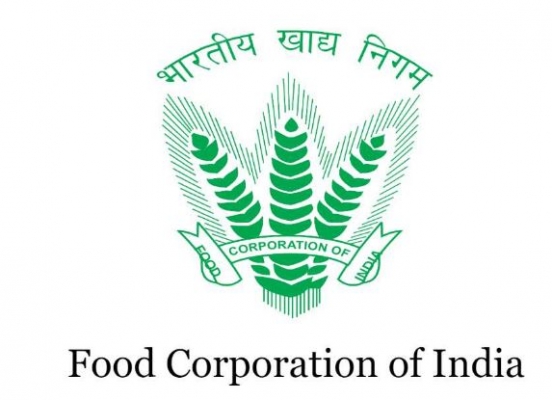
With rising stocks, cost and push to procure it’s a challenge for FCI
With rising stocks, cost and push to procure it’s a challenge for FCI
The Food Corporation of India’s (FCI) economic cost of wheat sold through the public distribution system (PDS) is budgeted to go up to Rs 29.94 per kg and that of rice to Rs 42.94 per kg in 2021-22, from their corresponding current levels of Rs 27.40 and Rs 39.99 per kg
These numbers are significant, given that under the National Food Security Act (NFSA) of 2013, 81.35 crore persons, accounting for over 67 per cent of the country’s population are entitled to receive 5 kg of PDS wheat or rice per month at Rs 2 and Rs 3 per kg, respectively. At the projected economic cost of Rs 29.94/kg for wheat and Rs 42.94/kg for rice, the corresponding per-kg PDS consumer subsidy in the coming fiscal would work out to Rs 27.94 and Rs 39.94, respectively.
The economic cost is what the FCI incurs in procuring, transporting, storing and distributing every kg of wheat or rice. The estimated Rs 29.94/kg economic cost for wheat in 2021-22 includes a pooled cost of Rs 19.21 (roughly what the farmer gets), procurement incidentals of Rs 3.20 (gunny bags, market fee, arhtiya commission, labour and other mandi-level expenses) and distribution cost of Rs 7.53 (freight, handling, storage, interest and other administrative charges). In the case of the Rs 42.94/kg for rice, the pooled cost is Rs 27.90, with procurement incidentals at Rs 4.85 and distribution cost at Rs 10.19.
Under NFSA, enacted during the previous United Progressive Alliance regime, the Rs 2-3/kg PDS issue prices for wheat and rice were valid for up to three years from the date of commencement of the law on July 5, 2013. The Narendra Modi government has not raised these rates so, even as the Finance Ministry’s latest Economic Survey has pointed to the need to consider a revision in the Central issue prices of PDS grain to reduce the bulging food subsidy bill.
At Rs 42.94 for rice and Rs 29.94 for wheat, FCI faces higher cost for PDS and Covid distress schemes. Add to it, the political pressure to procure given the protests over the farm laws. The subsidy bill is set to balloon.
Meanwhile, rice and wheat stocks in the Central pool remain way above necessary levels despite the Modi government implementing special schemes for alleviating the widespread economic distress resulting from the Covid-19- induced lockdown.











